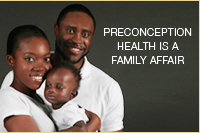
According the CDC “Ever 9 1/2 minutes someone in the United States is infected with HIV,” and according to AVERT “In 2007, the highest rates of new AIDS diagnoses were in Miami (33.1 per 100,000 people), New Orleans (31.5), Baton Rouge (31.4) and Washington (30.5)”
So what can you do?
June 27th is National HIV Testing Day so take advantage of the testing opportunities taking place around you and learn the facts about HIV.
The list of local testing sites can be found below, or you can find information for other cities by visiting this site.
Who: EXCELth, Inc. HIV Prevention Program
What: Free Rapid HIV Testing
When: June 27, 2009, 9:00 am to 12:00 pm
Where: Dillard University w/ The National Coalition of 100 Black Women, 2601 Gentilly Blvd., New Orleans, LA 70122
Info: Free Rapid HIV testing, incentives. Contact: Barbara A. Peters, 504-524-1210, bpeters@excelth.com.
——————————————————————————–
Who: NO/AIDS Task Force – Community Awareness Network
What: Free Rapid HIV Testing
When: June 27, 2009, 1:00 pm to 5:00 pm
Where: 7800 Earhart Blvd., New Orleans, LA 70125
Info: Free HIV Testing with free food. Contact: Allison Vertovec, 504-821-2601 ext. 257, allisonv@noaidstf.org.
——————————————————————————–
Who: NO/AIDS Task Force – Community Awareness Network
What: Free Rapid HIV Testing
When: June 27, 2009, 1:00 pm to 5:00 pm
Where: 507 Frenchmen St., New Orleans, LA 70116
Info: Free, confidential, Rapid, HIV Antibody screening tests. Contact: Allison Vertovec, 504-821-2601, allisonv@noaidstf.org.


 myLSUHSC
myLSUHSC

